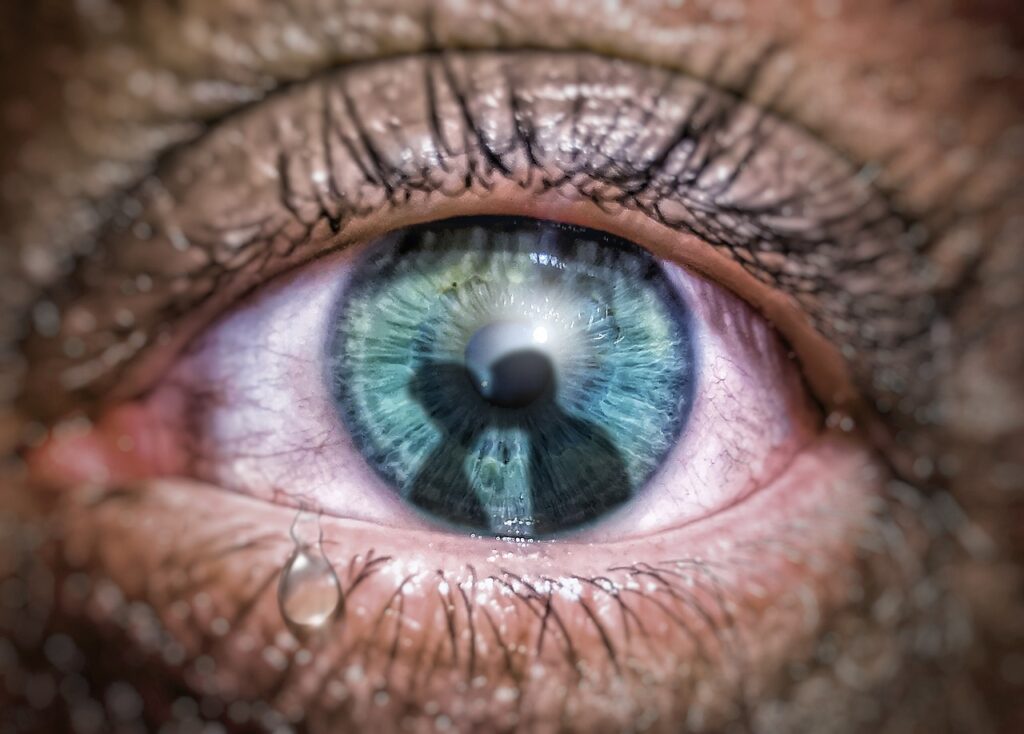When I was living in the United States, I found myself in a relationship with a beautiful woman who was a successful entrepreneur.
For the most part, things were great. We genuinely enjoyed each other’s company, but there was something that really got on my nerves, more than it should have.
At times I felt frustrated because I thought she didn’t care about me. From my perspective, she never took the time to reach into my world when I was hurt, or acknowledge what I was going through – which brought up feelings I really didn’t want to feel.
After having a bad day one evening, we were hanging out and I made a comment about it a few times. She was just getting on with her business, as she didn’t see it as a big deal- and dismissed it.
Due to my own childhood wounds, I felt I couldn’t express myself – that the only time I could was if I was prompted. So I grew more visibly upset over the course of the night, because I was feeling unacknowledged – like I was just there for her, but she wasn’t there for me.
Eventually I stood up, said “you know what, I’m just going to leave”, and headed for the door.
She looked shocked, and snapped back saying “what’s your problem?” Which erupted into an argument.
We eventually communicated and cleared the air. Things were all nice and dandy again.
At a later date, she wanted me to meet some of her friends for a dinner arrangement. This happened to fall on the same day as a ceremony I wanted to attend. Reluctantly, I said I would go.
The night before the dinner arrangement, I withdrew, and said I wanted to do my own thing, as I felt my desires weren’t acknowledged.
All I wanted was her to acknowledge that I’m sacrificing something I wanted to do, to make her happy. Then in my mind, I would have happily gone. She stormed out and things fell apart.
Later down the track, once again, everything was going well. Until I got a frantic call by her telling me that her dog had ran away at a local park.
I immediately called an Uber to get to her apartment, kept her on the phone as she was distressed, and met up with her.
It was a cold rainy night, and we spent hours searching for the dog. We finally got the dog back, and things started going downhill, once again from there.
No thank you. No acknowledgement. She was just getting on with her good old life, and I felt abandoned. So these painful emotions begun boiling to the surface, that I was just there for her convenience.
I couldn’t contain my resentment I stormed out, telling her that she didn’t care about me. We stopped seeing each other from that moment.
This was a particularly painful relationship for me, since it reminded me of an old trauma – of not feeling heard. But the ironic thing is that without experiencing this, my wound of neglect would have always been concealed.
Looking back on this relationship, I realized that she was triggering my wound of neglect, while I was triggering some of hers. This caused a complete breakdown in communication.
Even though she genuinely tried to be there for me and didn’t see any issue, my inner child was always screaming “what about me! I’m a person too! Acknowledge me!”
So this past trauma of neglect transferred into this particular relationship.
For most people, not feeling acknowledged in a relationship might not be a big deal, because they know that they are cared for, and don’t need the affirmation.
But for me, I turned into a whiny little kid, because she kept triggering this wound of neglect.
This is what a trigger is.
We all have traumas, we all have wounds. And this means we all have triggers.
So that’s what we’re going to look into in this article. How can you identify your triggers, and use them to heal the root trauma.
What is a trigger?

Have you ever had someone rub you the wrong way, without actually doing anything wrong?
Or maybe someone said something that provoked a strong emotional reaction. There may have been no negative intent, but at the same time, you feel personally attacked.
Maybe when a friend cancels on you, you feel completely abandoned. You think, ‘what an asshole! I would never treat a friend like that. He doesn’t even care what I’m going through’
But you have no idea where these reactions came from. Why did it hurt so much, why am I feeling this way?
These are triggers – unconscious emotional outbursts which are brought on (or triggered) by something external.
These outbursts are usually irrational, and tend to come on instantly.
A trigger usually comes in the form of an intense episode of anger, distress, or sadness. When you’re triggered, you may become hostile with someone, because you feel like they’re deliberately trying to hurt you.
On the outside, when someone is triggered, it usually comes across as a huge overreaction.
I’m sure you can recall times when someone completely overreacted to something so small – in which they go into a frantic state where any rational discussion becomes impossible.
Maybe you teased someone in good faith and they erupted and stormed off. Or perhaps someone exploded when you challenged their opinion about something.
You didn’t mean any harm, but that’s not how it was received at all.
What triggers people?
Triggers are usually caused by other people, although this is not always the case.
Much of our trauma comes from our experiences with people. So naturally, people activate these trauma responses when they say certain things, behave in certain ways, or create situations which remind you of your past experiences.
But anything can cause a trigger, depending on where your trauma lies.
It can be a situation you’re in, something you’re witnessing, even a bird chirping.
How are triggers created?
If you experienced a traumatic event as a child, you didn’t have the emotional maturity to understand it – let alone deal with it.
Therefore, the wound is pushed into the subconscious mind and forgotten – so that you can get on with your life and return to it when you are emotionally mature enough to heal it.
This trauma never goes away. It might seem like it does, but it stores in the emotional body like a poison which slowly rots away your well-being, inside out.
By the time we grow up, the wound has been so buried, that we forget we even have it. But there are indicators that something isn’t quite right.
This wound manifests in the form of triggers, to feeling generally unhappy, to emotional blocks and episodes of mental illness. These issues tend to get worse over time, and the triggers more severe, the longer we leave it.
Eldora and Siman explain why triggers are created well in this video. I suggest checking it out.
If you never look at your triggers, you never end up looking at the trauma which causes them. This means you never have an opportunity to heal the root cause of the trigger, because it is so well guarded from your awareness.
Why do you need to look at your triggers?
A trigger means that you have unhealed trauma.
Think of it like an emotional Band-Aid. Triggers are essentially covering up wounds that are painful to look at. So when someone touches on a trauma, you unconsciously snap back as a way to prevent yourself, or anyone else from opening up that wound.
Your ego says “that’s a whole fucking can of worms I don’t want to open right now, so I’m going to divert your awareness from going inwards”.
So you project.
In this sense, a trigger is a defensive mechanism. It’s a cover up, but it also causes more harm in the long run – as it prevents you from actually looking at the wound which caused it.
The ego is like the guard dog protecting a vulnerable baby. The intention is good, but it’s misguided.
For example, if you get triggered every time someone leaves, it’s probably covering up a wound of abandonment.
If you allow the ego to take control every time you’re triggered, it’s doing its job perfectly – which is to cover up the wound and prevent you from being aware of it.
It takes willpower to actually look at the trigger, when you’re triggered. But by doing so, this is when you can actually take steps to heal the wound.
What are some common triggers that people have?

The trigger of constructive criticism
You might get frustrated or lash out when someone corrects you, or gives you constructive criticism.
When someone is genuinely just trying to help, you might take it as a personal attack – that they’re just trying to put you down. So you retaliate, defend your position, and make them out to be the villain.
This wound comes from never feeling good enough.
The trigger of authority
This trigger is a sign that you didn’t have much control when you were younger.
This creates a wound where you will always feel taken advantage of – regardless how distorted the reality of it is. You might get upset or lash out when someone tries to direct you, or tell you what to do.
Boundary trigger
This trigger comes from being a pushover when you were younger, and developing trauma from not being able to stand up for yourself.
If this wound is not healed, you might lash out and get upset when someone crosses your personal boundaries, instead of calmly asserting yourself.
Compliance trigger
Some people who always play by the rules may get triggered when they see others breaking the rules. This has especially been highlighted during the pandemic, as this dynamic has been illuminated to an extreme.
This is because some of those people felt powerless, as if they were forced into compliance, and cover up how they really feel about the situation. When they see people who simply refuse, it illuminates this wound, that they didn’t have to comply – and probably suffered a lot by doing so.
So they project their anger, and make out anyone who doesn’t comply (even if its for good reason) as the enemy – so they don’t need to acknowledge that they made a bad decision, and paid for it.
Unworthiness trigger
Before I was healed, I would feel jealous when I see beautiful women with men who were less physically attractive than me, or had less money, weren’t as smart as me etc. My child-self would come out and say “I’m way better than that person, why can’t I find a beautiful woman for me!?”
Since I never felt worthy of being loved, I projected in the form of a trigger, so that I didn’t have to look at why I didn’t feel worthy, and that the problem was with me, not them.
Neglection trigger
This trigger comes from traumas of neglect, and if you didn’t receive much attention growing up.
When people dismiss you or ignore you – or perhaps just don’t pay attention to you, you get triggered because it’s rubbing an old wound of not being seen.
Abandonment trigger
When someone leaves and doesn’t tell you why, or where, you feel an intense reaction of anxiety.
You may lash out at the person, or resent them, and jump to all sorts of conclusions that they’re leaving you, or cheating, or that you’ve done something wrong.
How can you identify a trigger?

When the intensity of an emotional reaction is disproportionate to whatever caused it, this indicates a trigger.
Unresolved feelings that repeatedly show their face during certain situations are begging you to have a long hard look at yourself.
The bigger a wound, the bigger the trigger. If you explode from something so little, that means you have a gaping hole in yourself that you need to patch up. Having a meltdown from something indicates a much more severe trauma than getting pissed off about it.
The more wounds you have, the more you will get triggered by different things. If you have wounds of abandonment, betrayal, regret etc. you’re going to get triggered by many different things, not just one particular situation.
With this said, below are some ways to identify a trigger.
Pay attention to your reactions
How you react is a key indicator of your triggers.
Since emotional outbursts are usually unconscious, it can be hard to catch yourself when it happens.
That’s why it’s really important to pay attention to your emotions, how you feel, and when something really unpleasant surfaces.
Really pay attention to what you’re feeling, so you can catch an outburst ideally before, or while it’s happening.
Notice your reoccurring patterns
A reoccurring pattern is a painful situation that seems to continuously repeat itself.
If something keeps happening over and over again, this could involve a trauma that’s continuously being illuminated.
Look into the painful trends in your life, whether it’s from attracting a particular type of person, being taken advantage of, being neglected or personally attacked.
What trends continue in your life, and is there a wound you can identify through it?
Learn everything I know about reoccurring patterns by following this link.
Stop and breathe
Your emotions are going to spiral out of control when you get triggered by something. When you feel an intense emotional reaction coming on, stop everything.
Bring it all back to your breath, and focus!
If you can focus all of your attention on your breath while your emotions are flaring up, this will help you diffuse yourself, while allowing you to think more rationally about the situation.
Look at what exactly triggered you
Can you pinpoint exactly what was said, or done that made you react in a certain way? Has it happened before?
Look at what exactly caused the emotional outburst, as that gives you something to work with.
If you don’t pay attention, you’re never going to identify the wound.
Reflect, don't project
When you’re triggered, you tend to project. This is why it’s very important to stop yourself from projecting when you feel an intense emotional reaction brewing.
Instead, reflect on those painful emotions you’re feeling. Try to pinpoint what exactly the emotion is, and how it’s making you feel.
By making a habit of catching yourself when you react, thinking about what caused it and how you feel, you’re going to start seeing some painful patterns you’ve been living your life by.
Think about what you want
Part of identifying a wound is to be ready to see it – because it definitely isn’t fun to look at.
When you have cultivated enough awareness about your triggers, you need to cultivate a desire to heal them.
Affirm to yourself that you want to see the wound. Your awareness will go inwards as long as you keep reinforcing this desire, to see your wounds.
Set healthy boundaries
If you’re not sure where your boundaries are, or what crosses a line for you, you’re not going to know what an appropriate reaction is when someone does cross a line.
By knowing where your boundaries lie, it’s going to make it much easier to know when you’re reacting due to a trauma response, or whether your reaction is warranted.
How can you heal these wounds?

The only way to get rid of triggers once and for all is to heal the wounds that they’re covering up.
This by no means is an easy practice, but like all healing, practice, patience, and perseverance are important keys.
Use the trigger as an access point
Whenever you are triggered, be aware that you are being triggered.
Acknowledge that you’re probably distorting the reality of the situation due to your own wounds. Use this as a springboard to launch into your emotions, and really work on them.
When you cultivate an awareness of when you’re triggered, this is a good thing. It’s good because the trigger shows you that someone is touching on a sore spot, which is helping you identify it.

Journal about your feelings
I recommend getting a shadow work journal. Every time you feel something unpleasant come up, write it down. Write it all onto paper – how you’re feeling, what’s going through your mind.
Keep a log of every time you’re triggered.
This will help you gain more clarity about the triggers, while helping you express yourself and get it all out via a healthy and productive medium.
Observe rather than react
Go inwards.
When you start feeling triggered by something, try to prevent yourself from reacting.
It’s also important to humanize the experience. You’re a human being. You will have wounds. We all have wounds. Don’t beat yourself up for not always being in control. Just take reasonable steps and keep working on it.
Sit with the pain
As I talk about this a lot on this website, healing takes place by sitting with those painful feelings.
When you allow yourself to feel the wound fully without distracting yourself, projecting, or trying to escape it, that’s when the healing begins.
This can be a really unpleasant process, and it will hurt. But that hurt is like disinfecting the wound. You’re flushing all the toxins out of it so it can actually heal.
Repair the wound with self-love
Show yourself some love.
Think of your lower-self, or the inner child that just wants to be accepted. Picture him, look at him. Give him the love that he never got from anyone else.
Self-love is so hard to do, especially when we have these gaping wounds, because they allude us into thinking that the cure is outwards, but it’s not.
So practice visualization techniques to integrate those missing parts of yourself.
Practice expressing yourself in a healthy way
Self-expression is like a muscle. The more you make a habit of expressing yourself and purging these unwanted energies, the quicker you’re going to get out these toxins and start healing.
When you build a habit of expressing yourself in a healthy way – that is to allow yourself to be angry, sad, frustrated and emotional when you feel it.
When you create a healthy habit of expressing yourself, you’re getting a lot of this painful energy that you’ve been carrying around out of you.
Instead of bottling it up until something presses the button and causes you to explode, it becomes much easier to manage your mental health.
How do you deal with someone who has been triggered?

If something you did triggered someone else, first of all, realize that it’s not you at fault. Something you did pressed on a sensitive spot, which caused an emotional reaction.
Don’t try to make them see it. In most cases, this is just going to make the situation worse.
Their trigger is a defense mechanism. Their ego will make you out to be the culprit, because it’s trying to prevent them from opening up the wound.
Therefore if you’re telling them that they’re reacting this way because of a trigger, or that they’re at fault, they’re probably just going to get more triggered.
Understand that triggers are not rational.
People don’t think rationally when they have been triggered. So trying to get the person to see logic isn’t going to help. In their eyes, you’re probably just gaslighting them, or trying to manipulate them into being wrong just to save yourself.
Instead, just understand.
Don’t react to their projection, just be there for them and come from a heart-centered place of non-judgement.
This can be really hard to do, because you will feel like you’re being attacked. But when you lead by example of being the bigger person, often the person who has been triggered will come around in their own time.
They will realize that they’ve been an asshole to you, apologize, and start cultivating an awareness of their triggers.
This is an appropriate time to gently talk to them about what happened – ofcourse coming from a place of understanding and compassion. Not authority – saying I am right!


2 comments
I loved this post, it has helped me tremendously! Thank you!
Glad to hear it! You’re welcome